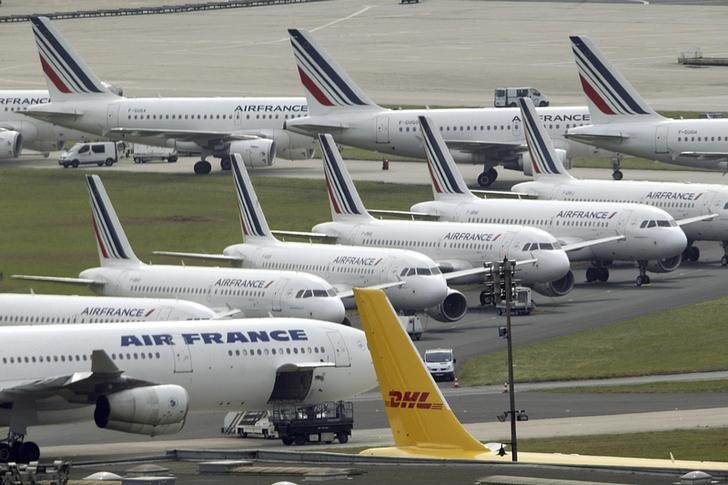Air France-KLM shares plunge 11% after weaker Q3 results and rising costs
Investing.com -- Shares of Air France-KLM (EPA:AIRF ) fell over 11% on Thursday after the airline group reported a bigger-than-expected drop in its third-quarter operating profit.
The group's operating result of €1,180 million came in 4.5% below analysts' consensus, reflecting a combination of factors that pressured earnings, including higher costs, a hit from the Olympics, and weaker-than-anticipated performance at its KLM division.
It was a challenging third quarter, with the Olympics alone accounting for an operating impact of €160 million, alongside a €50 million bonus payment to staff.
“Underlying trading at AF looks strong, but the challenges at KLM are significant, with costs rising very fast. Fuel falls but FY24 consensus looks vulnerable,” said analysts at Barclays (LON:BARC ) in a note.
The overall impact of these issues contributed to a decline in operating profits, which fell by €74 million year-on-year at Air France and by €143 million at KLM.
“Unit CC CASK ex fuel was 3.4% (which we think is somewhat disappointing),” said analysts at UBS in a note.
Passenger revenues also showed weakness, with revenue per available seat kilometer down 1.9% year-on-year, although cargo operations performed better, with revenue tonne kilometers up 5.9%, partly due to disruptions in the Red Sea shipping lanes.
Transavia, the low-cost arm, offered a bright spot with a €70 million increase in operating profit year-on-year, driven by strong demand and new ancillary revenue streams, like its recently introduced wheelie bag fee.
Looking ahead, the airline has refrained from offering specific guidance for the rest of 2024, though analysts are expecting the group to generate an operating profit of around €1.48 billion.
The airline's full-year capacity plans remain unchanged, but unit cost expectations have risen, with the group now anticipating a 3% increase in unit costs excluding fuel and foreign exchange impacts, up from a previous estimate of 2%.
Fuel costs for the year are expected to be lower than initially forecast, with hedging covering 70% of the group's fuel needs at a price of $881 per metric tonne.
Despite the weaker results, Air France-KLM remains cautiously optimistic about certain segments of its business, including maintenance, repair, and overhaul services, as well as its loyalty programs, both of which continue to show resilience.
However, analysts warn that the group's performance, especially at KLM, may remain vulnerable to both macroeconomic pressures in France and globally, as well as ongoing cost challenges, which could impact results in 2025 and beyond.
Source: Investing.com
